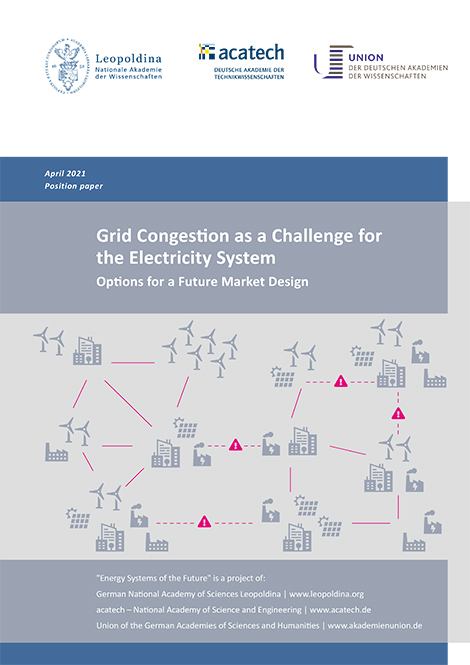The energy transition and the European Energy Union are placing new requirements on electricity grids. Any ongoing grid congestion may well cause high costs and additional risks to grid stability, which can be countered by adjusting the market design. This position paper sets out five policy options. The following points may be noted:
- Suitable price signals can ensure that the available transmission capacity is taken into account in dispatch decisions for generation, storage and consumption units. Thereby, grid congestion is preemptively addressed. Such signals can apply both to the wholesale electricity price and to grid fees. Such approaches should be more thoroughly investigated.
- Utilisation-based grid fees have the advantage that they can be incorporated into the system of a uniform German electricity bidding zone. Such an approach would, however, first have to be developed and trialled.
- Market-based procurement of flexibility for eliminating subsisting grid congestion fits well with the guiding principle of a competition regime. It would provide incentives to make better use of flexibility potential, specifically on the load side, and to tap any innovation potential. The functioning of electricity and flexibility markets would, however, have to be monitored. The same applies if increased financial incentives were to be added on to the current cost-based procurement system. Such approaches should be pursued.
- All the policy options have their advantages and drawbacks. A combination of measures should therefore be considered in order to achieve the best possible outcome.
acatech/Leopoldina/Akademienunion (Eds.): Grid Congestion as a Challenge for the Electricity System. Options for a Future Market Design (Series on Science-based Policy Advice), 2021. ISBN: 978-3-8047- 4117-1




